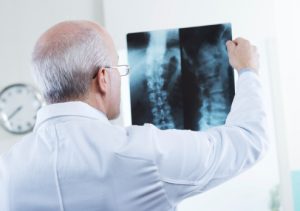
Four factors that contribute to bone loss
Bone loss, and more specifically osteoporosis, is often identified as a female health problem, but men are not immune to losing bone density. There are many factors that can contribute to bone loss, so practicing bone-boosting habits is essential, especially as you age.
Bones are composed of minerals, the most predominant being calcium. The body goes through a process called resorption, meaning it breaks down old bone and creates newer, stronger ones. Unfortunately, as we age, this becomes more difficult. The quicker old bone breaks down the more the need for new bone increases, but older adults simply do not create new bone as quickly as someone who is young. Bone loss can lead to osteopenia, which can evolve into osteoporosis. Bone disease can increase fractures and breaks and can negatively impact a person’s life. Here are four factors that can contribute to bone loss, aside from aging, and what you can do to prevent bone loss. Continue reading…
Many people are familiar with the term osteoporosis, but fewer have heard the term osteopenia, which means lower bone density than normal. If you have osteopenia, your bone density may be lower than normal peak level, but it isn’t low enough to be considered osteoporosis.
Bone density is simply the measurement of how dense and strong bones are. Lower bone density puts you at a higher risk of eventually getting osteoporosis.
Low bone density is often associated with the elderly. As we grow older, bones become thinner due to the fact that the body reabsorbs bone cells faster than new bone is made. Other diseases or treatments can also cause osteopenia. Continue reading…
New research published in the Journal of Bone and Mineral Research suggests that women who consume a diet high in anti-inflammatories experience less bone loss than their peers.
The study examined data from the Women’s Health Initiative and compared inflammatory elements of participants’ diets to their bone mineral density and fractures, discovering a connection between food and bone health. Continue reading…
Diabetes can increase the risk of bone loss, and the severity of diabetes can determine its impact on bone health. Osteoporosis is a consequence of diabetes, and both diabetes and osteoporosis have a high prevalence in America. The likelihood of developing both conditions increases with aging.
Type 1 diabetes causes bone mineral density loss, weakening the bones and leading to osteoporosis. In type 2 diabetes, though, there isn’t a great loss in bone mineral density. In fact, type 2 diabetics tend to have higher bone mass density than average. Unfortunately, many of these patients tend to be overweight, and that extra weight contributes to bone loss and bone weakening over time. Many studies have even shown that type 2 diabetics, even with above average bone mineral density, are still at a higher risk for bone fractures. Continue reading…
Psoriasis or psoriatic arthritis patients show higher osteoporosis and osteopenia prevalence, according to research. M. Elaine Husni, director of the Arthritis and Musculoskeletal Center at Cleveland Clinic, said “Clinicians who treat patients with psoriasis or psoriatic arthritis should be on alert for an association with osteopenia and osteoporosis.” The researchers suggest there is strong evidence to link psoriatic arthritis to bone loss, and there is an independent association between psoriasis and low mineral density. Continue reading…
Related: Bone loss linked with serious illness